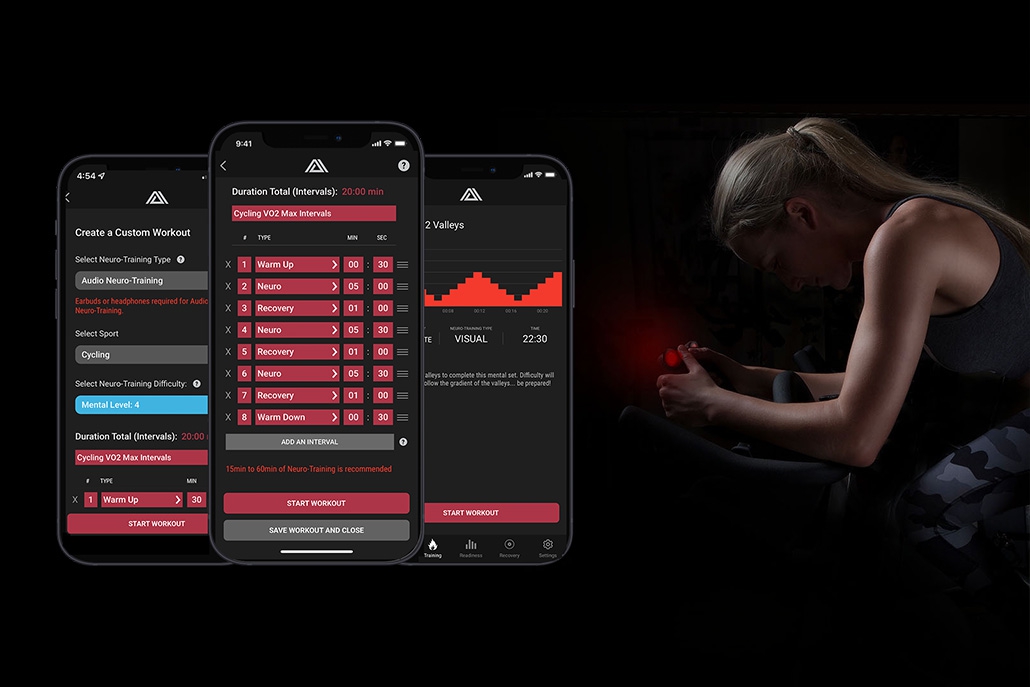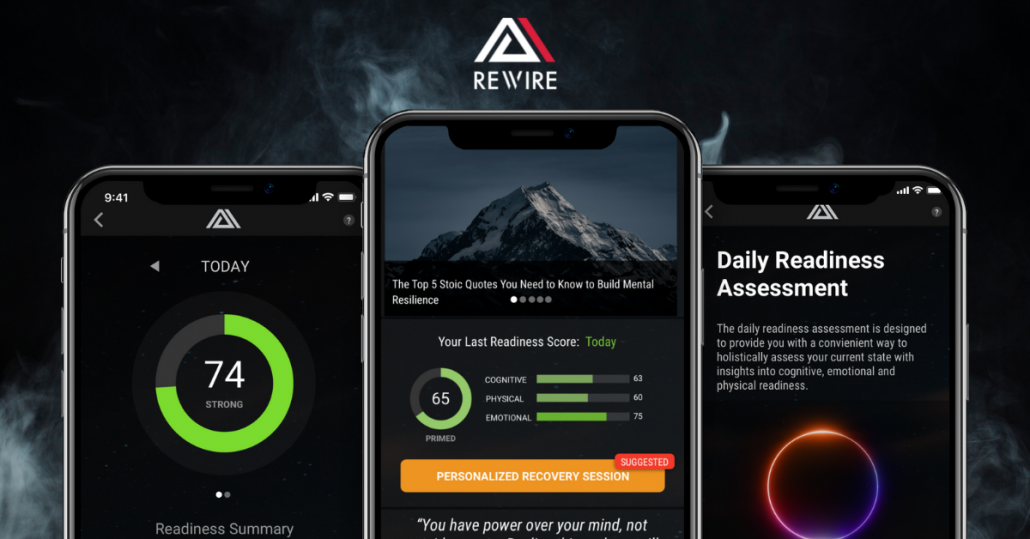Brain Endurance Training for Athletes: What You Need to Know
What is brain endurance training, and how can athletes benefit?
Do you want to increase mental resilience, decrease mental fatigue, and benefit from quicker decision-making? If so, then brain endurance training could be the secret sauce to unlocking a new level of athletic performance.
Brain endurance training (BET) is a type of neuro-training that focuses on targeted training towards a specific area of the brain responsible for goal-driven behaviour, effort perception, and impulse control. Training the brain and temporarily increasing mental fatigue during exercise has been shown to increase physical endurance while reducing the rate of perceived exhaustion (RPE), as found in a 2015 study.
By training the mind during exercise — stationary cycling, running and walking, for example — you can increase mental fatigue to improve mental resilience while reducing the perception of pain, fatigue, and exhaustion, to allow athletes to perform at higher intensities without getting tired as quickly.
This blog post will explain the concept of brain endurance training in more detail, rounding up current studies on BET and how it benefits athletes.
Does brain endurance training improve physical performance?
Mental fatigue is caused by prolonged periods of demanding cognitive activity. However, a build-up of mental fatigue negatively affects physical performance in humans, as mentioned by Marcora and colleagues.
During exercise, especially intense competition, we build up increased mental fatigue. And the more tired we become, the more likely we are to make errors regarding decision-making. We’re also more likely to experience a decrease in other cognitive abilities and may encounter a performance decline.
To help showcase the impact BET has on athletes and non-athletes alike, we’ve gathered together three studies — continue reading below for a round-up of the science.
BET training on professional-level football players
One study investigated the effect of brain endurance training on professional-level football players. 24 players were assigned to either:
- The control group
- The brain endurance training group
Both groups performed 20 supervised physical training sessions. After each session, the control group listened to 20 minutes of neutral music while the BET group performed 20 minutes of cognitive training.
After 4 weeks of training, results showed improved reactive agility — with fewer fouls — in the BET group and significantly faster decision-making (RSA random test). The control group also showed a significant decrease in performance in the same test. Aside from these results, there were no other significant differences.
So, what does this study suggest? This research provides evidence that BET, combined with football training, is more effective than standard training in boosting cognitive and physical performance in professional football players.
BET training on healthy male adults
An earlier study also looked at the effect of BET, although instead of analysing professional football players, the study population was healthy male adults. 35 male adults were allocated to one of two groups:
- The control group
- The brain endurance training group
The two groups trained on a stationary cycle ergometer for 60 minutes at 65% VO2 Max 3 times a week, for a total of 12 weeks. During each session, the BET group performed a mentally fatiguing task on a computer, while the control group did nothing other than cycle.
Results found an increase in VO2 Max in both groups — which was to be expected — but also found a significant increase in time to exhaustion in the BET group. Similarly, RPE was significantly lower in the BET group compared to the control group.
The findings of this study support the previous study, suggesting that not only can elite athletes benefit from BET, but regular healthy male adults can, too. Brain endurance training can alleviate fatigue and reduce the perception of pain during endurance exercise.
BET training on healthy undergraduate students
And finally, we have another piece of research, this time from 2020, which explores the effect of concurrent brain endurance training on 15 females and 21 male healthy undergraduate students.
Similar to the other two studies, participants were randomly assigned to one of two groups:
- The control group
- The brain endurance training group
Tests took place over 8 weeks and consisted of 26 sessions. During each test, the BET group performed a 5-minute endurance task — participants were to generate as much force as possible by squeezing a handgrip dynamometer with their dominant hand once per second, cued by a metronome. The test was performed under 3 conditions:
- Following 600s of a 2-back working memory task
- While performing a 2-back task
- On its own (solo)
The 2-back test, also known as N-back, is a stimulus working memory test which requires participants to decide if the current stimulus matches the previous one presented several trials ago. The 3 tasks were separated by a 5-minute break. During this break, participants completed a self-reporting questionnaire. Baseline physiological measures were also recorded between tests.
Results found a 32% task improvement in the BET group and evidence to suggest changes in prefrontal cortex oxygenation. The BET group also showed greater performance scores in post-testing cognitive tasks relative to control. Rhythmic handgrip performance also revealed better performance than physical training alone.
The findings of this study are in line with the two previous studies, suggesting that BET training combined with physical training can reduce mental effort during physical activity, regardless of gender and athletic ability, as long as the participant is somewhat already healthy.
Related: What is Neuro-Training?
Reduce mental fatigue and improve physical performance
Brain endurance training has been proven to be effective in reducing mental fatigue and increasing mental resilience during exercise. Professional athletes, and the wider population alike, can benefit from this type of neuro-training. Adding brain endurance training during or after exercise will improve physical performance while reducing cognitive fatigue.
If you’re looking to add brain training to your exercise routine, consider the Rewire Neuro Performance Hardware — a pair of ergonomic buttons that allow you to perform brain training endurance while running, stationary cycling, walking, or weight lifting, for example. Neuro-training is also free on our mobile app — try this 3-minute session for beginners to get started, or check out our free web-based mental toughness challenge.
Related: Overview of Rewire’s Neuro-Training System
References
Dallaway, N., Lucas, S.J. and Ring, C., 2021. Concurrent brain endurance training improves endurance exercise performance. Journal of Science and Medicine in Sport, 24(4), pp.405-411.
Kane, M.J., Conway, A.R., Miura, T.K. and Colflesh, G.J., 2007. Working memory, attention control, and the N-back task: a question of construct validity. Journal of Experimental psychology: learning, memory, and cognition, 33(3), p.615.
Marcora, S.M., Staiano, W. and Manning, V., 2009. Mental fatigue impairs physical performance in humans. Journal of applied physiology.
Staiano, W., Merlini, M., Gattoni, C. and Marcora, S., 2019, June. Impact of 4-week Brain Endurance Training (BET) on Cognitive and Physical Performance in Professional Football Players. In MEDICINE AND SCIENCE IN SPORTS AND EXERCISE (Vol. 51, No. 6, pp. 964-964). TWO COMMERCE SQ, 2001 MARKET ST, PHILADELPHIA, PA 19103 USA: LIPPINCOTT WILLIAMS & WILKINS.
Staiano, W., Merlini, M. and Marcora, S., 2015. A randomized controlled trial of brain endurance training (bet) to reduce fatigue during endurance exercise. In ACSM Annual Meeting.













